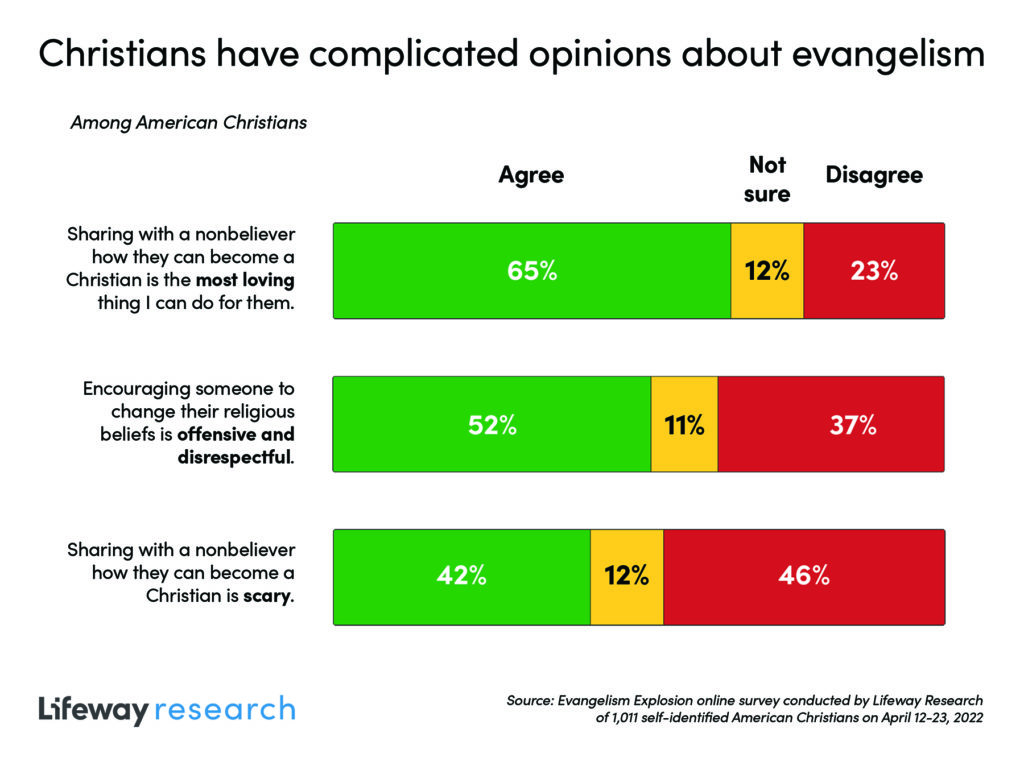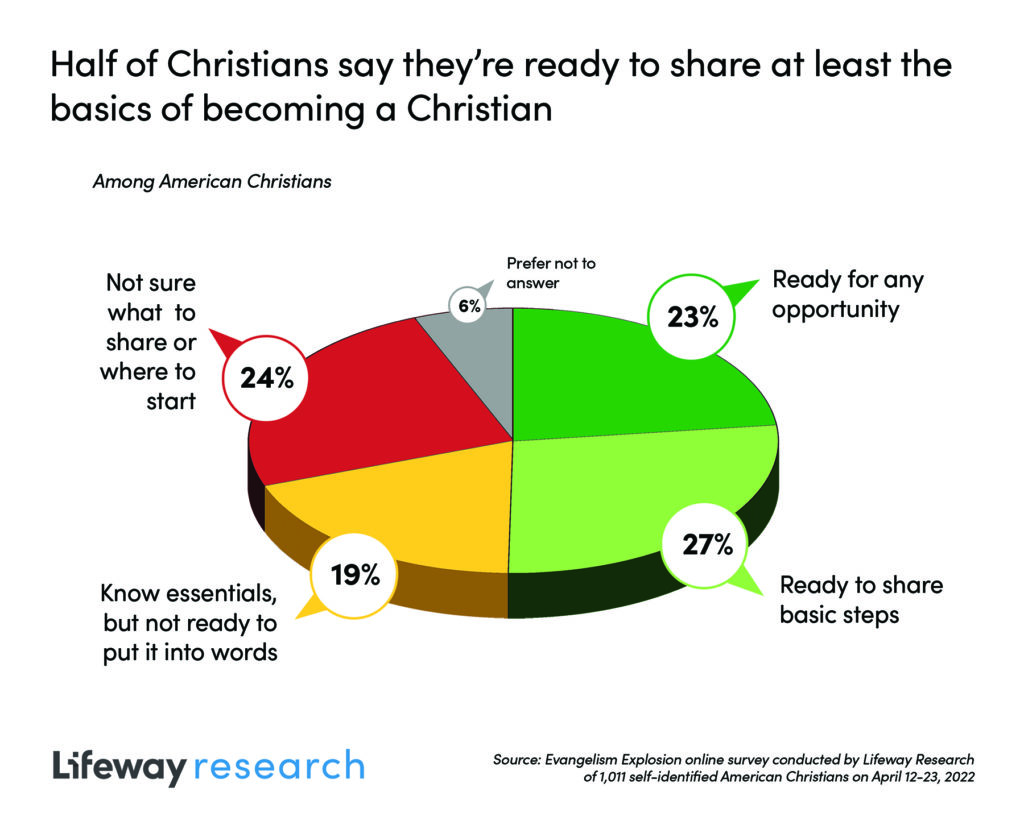Specifically, Christians are more prone to be proactive or reactive in their evangelistic tactics than avoiding it all together. Around 1 in 7 (14%) say they try to bring up faith in conversations with everyone, while more than a quarter (28%) look for natural opportunities to bring up faith. Close to a third of Christians (32%) say they answer faith questions if asked or comment if others bring it up. Around 1 in 5 (21%) say they won’t talk about faith with most people.
More than half of self-identified Christians in the U.S. (58%) say it is easy for them to talk about Jesus with non-Christians, including 23% who say it is very easy. A third (33%) say it is at least somewhat difficult, with 10% saying it is very difficult to share about Christ with those who are not Christians.
For some, evangelism might bring up emotions more closely associated with giving a public speech than having a conversation with a friend. More than 2 in 5 Christians (42%) say sharing with a non-believer how they can become a Christian is scary. Slightly more (46%) disagree.

When asked how they believe most non-Christians feel about evangelism, Christians are split. More than 1 in 3 (37%) think most of those who are not Christians see it as pushy. Almost a quarter (22%) believe non-Christians are open to it. Similar percentages say those who aren’t Christians view evangelism as worth hearing once (18%), hope-filled (17%) and worth exploring (17%). Fewer think non-Christians believe Christian evangelistic efforts are rude (14%).
According to a 2021 Evangelism Explosion study conducted by Lifeway Research, 51% of Americans, including 60% of the religiously unaffiliated, say they’re curious why people are so devoted to their faith. Two in 3 (66%) also say they are at least open to having a conversation about the Christian faith with a friend.
Still, in the most recent study, 52% of self-identified Christians agree that encouraging someone to change their religious beliefs is offensive and disrespectful, including 20% who strongly agree. Fewer than 2 in 5 (37%) disagree.
“It’s a bold idea to encourage someone to consider converting the center of their life to be Jesus Christ,” said McConnell. “For some Christians, their love for others compels them to suggest this offensive thought. For others, this discourages them from speaking up about what they believe.”
Evangelism Preparation
Two in 3 (66%) Christians say they aren’t familiar with any methods of telling others about Jesus, but half say they’re ready to at least share the basics of how someone can start following Jesus. Around a quarter (23%) say they’re ready for any opportunity to tell someone how to become a Christian, and 27% are prepared to share the basic steps. Another 1 in 5 (19%) say they know the essentials but aren’t comfortable yet putting them into words. A quarter of Christians (24%) say they aren’t sure what information needs to be shared or where to start.

Most Christians agree it’s their calling to share their beliefs but that it’s their pastor’s duty to equip them to do so. Seven in 10 Christians (69%) say it’s every Christian’s responsibility to encourage non-Christians to trust Jesus Christ as their Savior, including 35% who strongly agree. One in 5 (20%) disagree. Similarly, 68% agree it’s the pastor’s responsibility to equip the congregation to share the gospel, and 19% disagree.
When thinking about the specifics of being trained and equipped for evangelism, Christians have wide varieties in their preferences. Around 1 in 5 (19%) want to experience real-life faith conversations with a trainer and another 16% prefer to take a class in person. Fewer are looking for less personal or more individual activities like watching videos (14%), reading a book (12%), taking a class online (8%) or listening to audio like a podcast or audiobook (5%). Another 18% say they would never be trained in evangelism.
“Half of Christians aren’t ready to tell someone how to become a Christian, and that likely won’t change without some help,” said McConnell. “Most are looking to their churches and its leaders to help prepare them for these conversations about faith.”
For more information, view the complete report.
This article originally appeared here.

